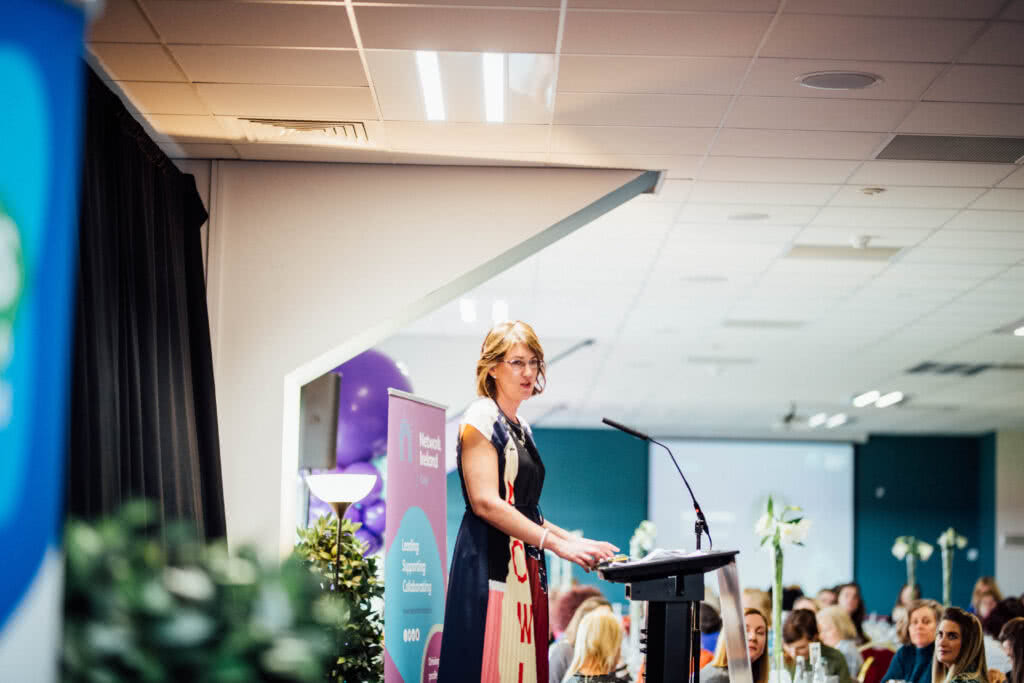One corporate event changed all of its attendees’ lives.
Permanently.
It all started when…
Curious?
That’s because the human brain is wired to be attracted to storytelling. It’s a natural human trait, and it’s one that you can use to make incredible events happen.
By using your event to tell a cohesive story, you go beyond event branding. You step into a higher realm of marketing that impacts your audience’s emotions and creates lasting, meaningful memories.
After working with event organisers for so many years, we know how important storytelling in business is. In this post, we’ll take a look at how to build your brand through storytelling, how to tell stories through events, how storytelling impacts different kinds of events, and how to up your storytelling skills.
Let’s dive in.
How storytelling builds business brands
After centuries of oral tradition — telling stories around the evening fire and passing crucial information for survival — evolution has hardwired our brains to understand stories.
According to Dan and Chip Heath, authors of the best-selling book Made to Stick, stories provide mental training.
“A story’s power, then, is twofold: It provides simulation (knowledge of how to act) and inspiration (motivation to act),” he says. “The takeaway is simple: Mental simulation is not as good as actually doing something, but it’s the next best thing.”
Put differently, if you want people to come to your events, share their experience on social, and develop a positive relationship with your brand, take advantage of stories. They build event brands through both simulation and inspiration.

How to tell stories through events
If you want to tell a good story through your event, there are a few key elements to consider.
- Identify a central message or theme you can build your story around. This will guide the rest of the decisions you make about your planning process.
- Choose your characters. Pick speakers and vendors that will act as the “characters” of your story. Make sure they have unique perspectives and experiences that match your story’s message.
- Illustrate the impact of the character’s actions. Make sure that your story has a definite arc. Find people that you’re really helping, share their stories and talk about how their lives changed.
This will set you up to tell a great story. But what should you talk about?
Have a central message or theme
First, you need to decide on the core idea behind your event. This is the theme of the story you’re telling, and it can be as simple or complicated as you want. For example, the central message of a product launch would be what the product does and how it benefits your audience.
Every good event should have an event theme, which can vary greatly. Themes can be abstract ideas like “how to improve your house,” or they can be concrete, like “this home improvement product will make your life better.”
The important thing is that you have identified the central message you want to convey.
Eventbrite organiser highlight: Square Enix
The team at Square Enix hosted the FINAL FANTASY XIV Online (FFXIV) 2023–24 Fan Festival, the fifth major event of its kind. Square Enix focused on this theme centred around one of the most critically acclaimed MMORPGs in the world to bring its community together at this in-person event.
Simon Wells, the executive director of publishing strategy, headed up the London event in October 2023.
Thanks to the event’s core theme, which is an ever-expanding community, the event has grown hugely in its 10-year existence. Thanks to the support from the Eventbrite team, the 2023 event was the biggest and best event the organiser has hosted.
Use speakers and vendors as central characters
For events with speakers and vendors, you can use them as “characters” in your story. You do this by choosing compelling figures with unique perspectives, personalities, and stories and enabling your attendees to interact with and get to know them.
These characters should be memorable, relatable, and tied to your central theme. To find interesting characters, make contacts during industry trade shows or on social media, for example. If you advertise your need for speakers, they could even volunteer for your event themselves — just make sure to vet them to ensure they fit your theme.
Eventbrite organiser highlight: Seed Talks
At Seed Talks talks, their speakers become the narrators telling stories to engage their attendees. Its founder, William Mclean, says, “We’re genuinely trying to make people’s lives better by giving them an opportunity to discover an enriching hobby or support their mental health.” Their approach makes their attendees the central characters.
The event uses diverse programming through storytelling to attract new attendees and entice existing ones, with the team adding culture to an existing mix of topics ranging from psychology to psychedelics and quantum physics.
“Recent successes include talks on the art history of Studio Ghibli and the cinematography of Wes Anderson,” McLean said. “And in early 2024, we’ll look at the gut-brain connection and the history of Nintendo. This means we’re reaching entirely new audiences and, as we always cross-promote our events, we hope they’ll return.”
Show real benefits
Finally, a great way to incorporate powerful business storytelling into your event is by showing how it can really impact attendees’ lives.
The most important step you can take to do this well and make your event more memorable is to identify and put into words what actual impact the event could have on your guests. Here are a few examples of concrete opportunities your event might offer:
- Setting sales meetings with decision-makers
- Seeing demonstrations of industry-leading technology
- Networking with industry leaders
- Forming mutually-beneficial partnerships with other companies
- Understanding industry trends and debates
Any of the above could be a compelling reason for someone to attend your event. Combined, they’re a great pitch to attract a wide range of people. That makes them useful for both your pre-event marketing materials and presentations during the event. Let people know why they should come and keep reminding them why they’re present.
How storytelling helps market nonprofit fundraisers
Businesses aren’t the only organisations that depend on events. Nonprofits lean heavily on fundraisers to provide a significant amount of their revenue.
A majority of donors attend fundraising events, and 84% of event fundraising pledges are fulfilled. Storytelling can help nonprofits ensure their events hit their fundraising goals.
In the new era of passionate, vocal donors, spending decisions are made based on what speaks to them personally. When marketing your charity event or asking for donations, talk about your cause through the lens of personal experience.
“When someone spreads your mission through their own experience — saying here’s why I’m passionate, here’s why I care — people are more likely to donate,” says Gary Wohlfeill, former marketing director at Crowdrise, acquired by GoFundMe.
Here are a few ways to tap into audience empathy by getting personal:
- Ask your supporters and fundraisers to tell their personal stories when talking about your event. People are more likely to pledge support when the request comes from someone with a personal connection to the cause.
- Include a checkbox on your registration form where attendees can mark if they’ve been personally affected by your cause so you can follow up and ask them for their own stories.
- Create short videos for social media using templates that help you tell captivating stories.
Across your event marketing, always aim to create empathy for the people, places, or ideas you’re raising money for.
Using empathy and connecting with your audience is a much-used tool in any great storyteller’s toolbox. Storytelling is an art, and part of it is knowing how to create an arc that draws the listener in. People can’t help but stay tuned to hear how it ends — or, for causes like yours, to help create a happy ending for those involved.
Similarly, in event marketing, telling a story well means telling it from beginning to end — across every marketing channel and throughout your entire ticketing lifecycle.
Audiences today are savvy about the ways they consume information on different platforms. They turn to Facebook to find out what’s happening. They sign up for email newsletters from their favourite brands. They gobble up Instagram Stories for informal behind-the-scenes content. And they use Twitter for quick facts.
With this in mind, you might:
- Announce your benefit on Facebook Events
- Send official invitations to attend through email
- Give a behind-the-scenes glimpse into the cause behind your mission with Instagram Stories
- Release facts related to your cause, with links to read more info, on Twitter
As you’re crafting every event promotion, think of it as part of your overall story. Use consistent images and wording from platform to platform, letting each marketing effort build on the last. Your overall objective is to set up the fundraising event experience and, over time, inspire people to attend and give.
Pro tip: Stories are best told in words and pictures. To be effective, both must be polished and professional. Consider hiring a copywriter, photographer, and videographer to provide the richest storytelling materials.
How to improve your storytelling for your business
To further expand on the art of storytelling, Craig Chaplin, former Senior Creative Director of global branding agency Jack Morton and now Executive Creative Director at Kindle Communications, shared the secrets behind successful storytelling.
His tips teach you how to foster creativity, garnering new ideas for your events by creating a story that sells.

We’ve curated a sample of his best practices for you:
Kill your darlings
William Faulkner once said, “In writing, you must kill your darlings.” No, he wasn’t advising you to commit a crime. Faulkner’s advice was for storytellers to cut the parts of their stories that didn’t serve the reader — no matter how near and dear to their heart.
What does this mean for your event? If something isn’t relevant to your audience — a session that isn’t valuable or a piece of copy on the event page that doesn’t help them — let it go.
Get personal
In the mid-2010s, Coca-Cola did the unthinkable and removed its iconic logo from the side of bottles and cans. The “Share a Coke” campaign personalised the beverages with 250 of the most common names and nicknames, giving customers a way to tell their own stories and share an experience with someone.
Personalisation stands as the ultimate way to immerse someone in the story you’re telling. So make sure to avoid sending emails addressed “Dear Attendee” and utilise technology that lets you get on a first-name basis with your crowd.
Use hashtags
Domino’s Pizza ran a giveaway across the UK, encouraging users to tweet #LetsDoLunch to get a discount on their Tuesday pizza order.
The tag was trending in no time, showing how successful a social media post can be at expanding your reach.
How storytelling affects virtual events
Storytelling doesn’t just impact in-person events. It can also make virtual events much more meaningful. By providing a clear narrative for your event, you can make a more impersonal medium personal and impactful.
A compelling story will grab the attention of your attendees and make them want to devote their full attention to the event. That’s hard to do when the nature of a virtual event lets them click on a new tab at any time. So, you need to be sure all of your guests are fully engaged.
Only 25% of virtual event organisers see an increase in attendee engagement, so it’s important to use storytelling to keep your audience tuned in.
Storytelling also helps clarify your event’s purpose. That means you’ll attract attendees who are already more interested, which means you’ll have a much more engaged audience.
Eventbrite organiser highlight: WEWLA Virtual Networking for Women in Business
Women Empowering Women Living Authentically (WEWLA) asks potential attendees of its virtual networking event one question: “Ready to set your personal brand ablaze and ignite the business world?”
WEWLA promises attendees that they’ll learn how to use their personal brands to take their businesses to the next level. That’s a powerful narrative, and it’s one that certainly encourages attendees to tune in and pay attention.
WEWLA tells us a story about how their characters will share business advice with the attendees and how this is a source of true learning for their attendees. The organisers build this narrative by using other business leaders and experts as the story characters.
The result is a more compelling and effective event for all involved.

How to tell a great story through your next business event
At this point, you might be wondering how you can tell a great story with your own event. You’ll need a theme, characters, and a powerful narrative arc. But all of that is easier with the right tools at your fingertips. First, you can hook potential attendees into your story with powerful marketing. Use Eventbrite to identify different audiences you can target with personalised storytelling. Once you’ve engaged them, you can make it easy for them to buy tickets seamlessly and, in so doing, remind them of the value of your event.






